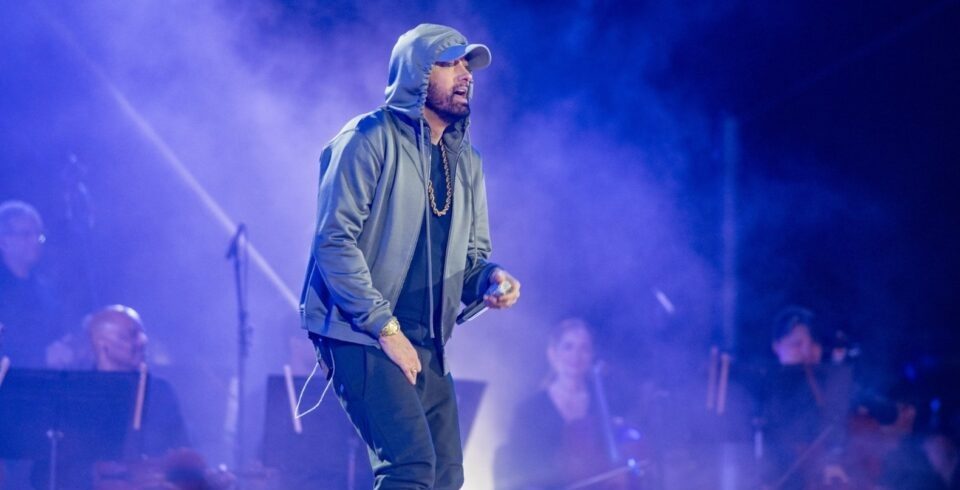EMINEM FIGHTS ‘SWIM SHADY’ TRADEMARK IN NEW BRAND CLASH

Rapper moves to protect long-running “Slim Shady” name
Rapper Eminem has asked U.S. authorities to cancel the trademark of an Australian beach-umbrella company called “Swim Shady,” arguing the name sits too close to his own famous moniker. Lawyers representing the artist say he has used and protected the “Slim Shady” brand for decades, across music, merchandise and live performances. The petition filed with the U.S. Copyright Office claims the beachwear company’s trademark could confuse consumers and dilute the strength of his mark. The company now has a limited period—around two months—to respond to the challenge.
The dispute highlights how global stars increasingly treat their stage names like corporate brands, defending them not just in music but in clothing, accessories and commercial tie-ins. Eminem’s team argues that allowing “Swim Shady” to stand would open the door to a wave of sound-alike products that trade off his reputation. For its part, the Australian firm has marketed itself as a playful beach brand rather than a music-related label. But the legal filing suggests that mere wordplay may not be enough to satisfy trademark rules when a world-famous name is involved.
Why this fight matters beyond one artist
For fans in South Asia and beyond, the case is a reminder that intellectual property battles can ripple far from courtrooms. Merch sellers, fashion startups and even small local brands often borrow phrasing or aesthetics from global pop culture with little thought for trademarks. As more businesses go online, those overlaps become visible—and vulnerable to legal action. Eminem’s move signals that big artists are watching how their names appear not just on record sleeves, but on beach umbrellas, T-shirts and social media campaigns.
Brand experts say the outcome could shape how far celebrity trademarks stretch into everyday language and humour. If regulators side with Eminem, companies may become more cautious about riffs on famous names, even in unrelated sectors. If they side with Swim Shady, it could strengthen the position of parody-style branding, as long as it avoids direct confusion. For audiences in Bangladesh, where local clothing and lifestyle brands often tap into global music references, the decision will be another data point in the evolving relationship between fandom, creativity and the law.






















